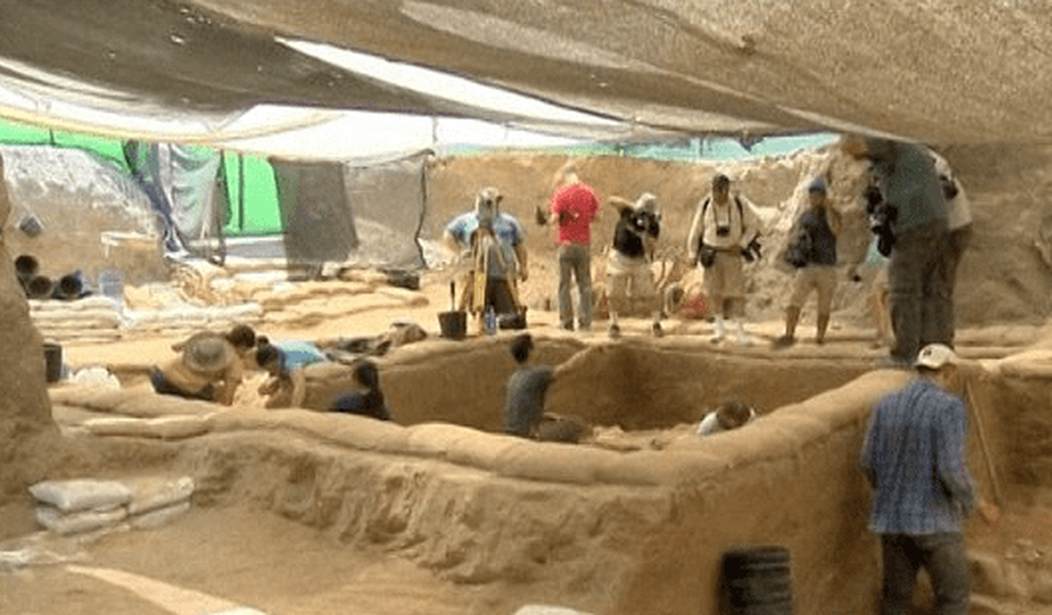Tyler O’Neil’s article here last Wednesday about the discovery of a burial ground of the ancient Philistines was fascinating and instructive. (Other stories on the excavation are here and here.) As I’ve shown at PJ Media in the past, I am fascinated by these archaeological efforts in and around Israel. It’s not so much that so many of the Biblical stories are being confirmed as largely true: It has long been evident that the Hebrew chroniclers were fairly accurate historians — albeit with a strong interpretive point of view that other peoples in their era surely didn’t share — so the archaeological confirmations should not be much of a surprise.
Yet even that which should not surprise us should still impress us and sometimes inspire us. After all, very few other peoples 3,000 years ago were such avid, careful, and largely accurate chroniclers as the Hebrews.
The reason we have almost no Philistine version of history and very little history as told by Assyrians, Phoenicians, Canaanites, and others is because they were not as dedicated to the craft of writing history, nor as insistent that later generations of their peoples should understand and honor both their common heritage and their God.
Then again, it is probably that last factor that explains the first: While other peoples of the era worshiped (multiple) gods, they did not define themselves in reference to those gods. In other words, unlike the people of Israel and Judah, the Assyrians did not self-identify as “the people who worship [whichever gods were theirs; I forget which was which].” Nor did the Phoenicians, or the others. Only the Hebrews saw their very identity as being inextricable from the reality that they were Yahweh’s people. It is probably true, therefore, that their very dedication to Yahweh played the largest part in their determination to record their history for successive generations of Hebrews. Their history wasn’t so much self-referential (and certainly not self-reverential: they recorded their own transgressions with a highly self-critical eye) as it was a history told in reference to, and in honor of, the God they tried, despite their human foils, to serve.
So when archaeologists dig up Hebrew artifacts, the artifacts tend to confirm the stories told in the Bible. But when archaeologists dig up Philistine artifacts, they learn much that is entirely new — because the Philistines did not preserve their own history and so doggedly persist as a people as the Hebrew people did despite the Hebrew history being so full of so many defeats, diasporas, and pogroms.
The Jews to this day call themselves “the people of the Book.” And “the Book” is a book dedicated to the workings of their God in and through history. No God — no Yahweh — no book.
We all should learn to be so faithful.









Join the conversation as a VIP Member